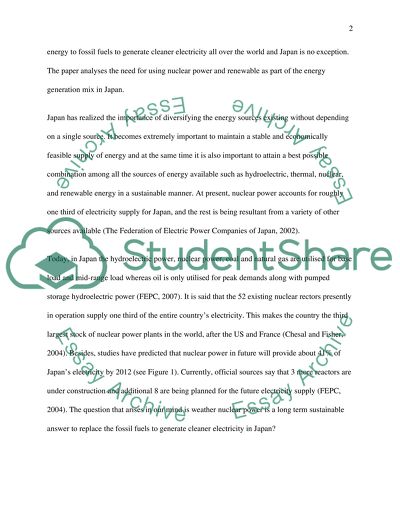Cite this document
(“Nuclear Power in Japan Essay Example | Topics and Well Written Essays - 1500 words”, n.d.)
Retrieved from https://studentshare.org/technology/1518692-nuclear-power-in-japan
Retrieved from https://studentshare.org/technology/1518692-nuclear-power-in-japan
(Nuclear Power in Japan Essay Example | Topics and Well Written Essays - 1500 Words)
https://studentshare.org/technology/1518692-nuclear-power-in-japan.
https://studentshare.org/technology/1518692-nuclear-power-in-japan.
“Nuclear Power in Japan Essay Example | Topics and Well Written Essays - 1500 Words”, n.d. https://studentshare.org/technology/1518692-nuclear-power-in-japan.


